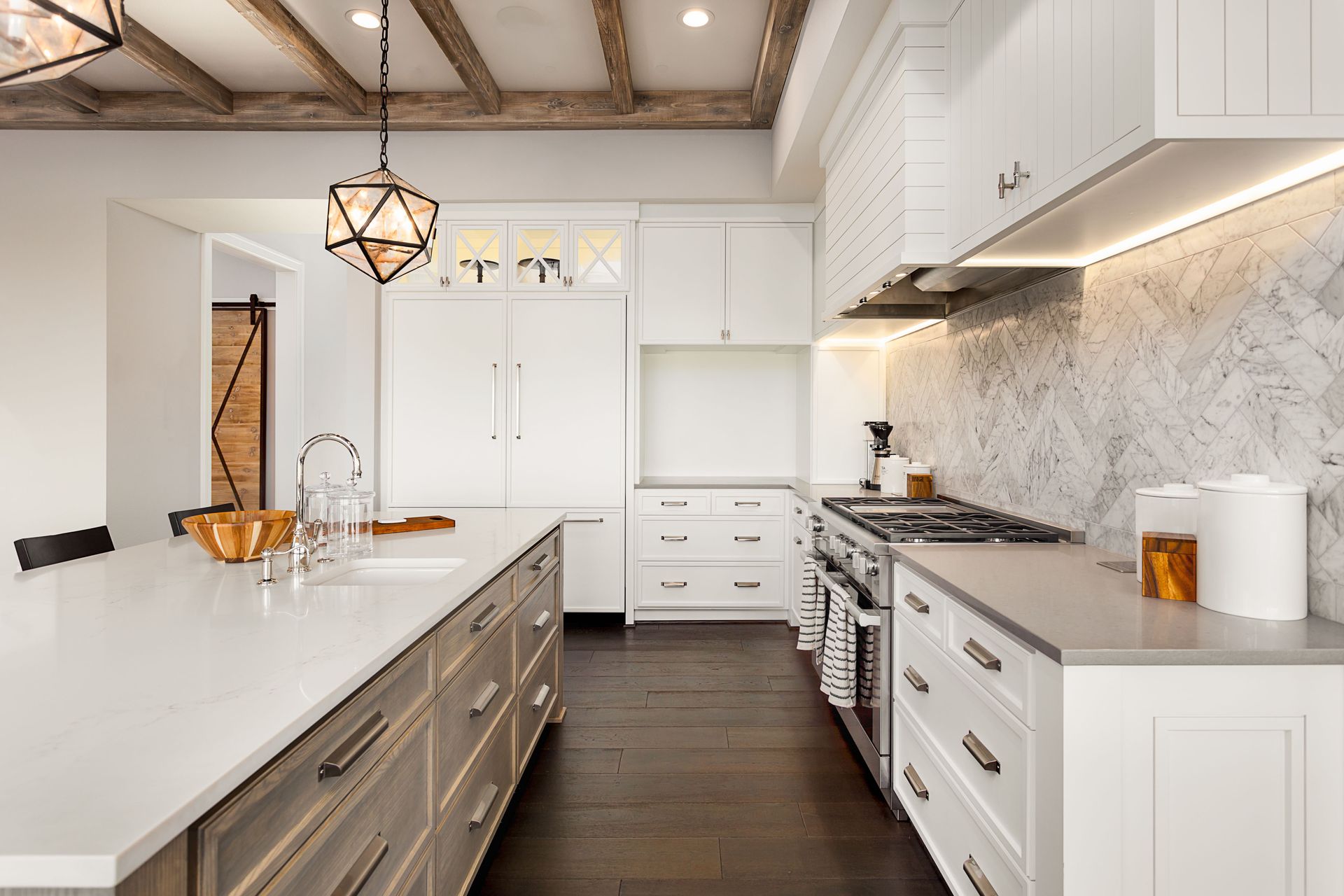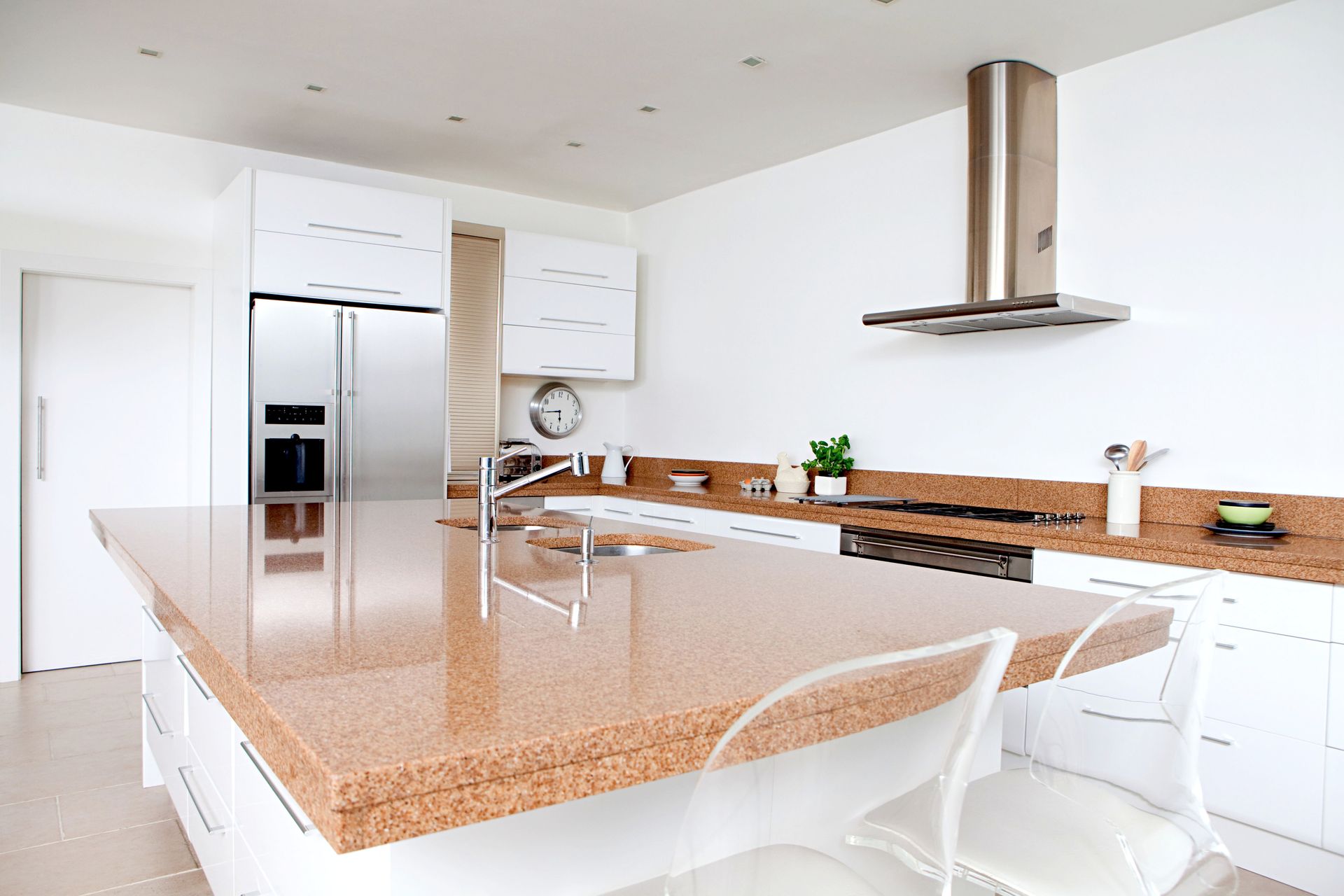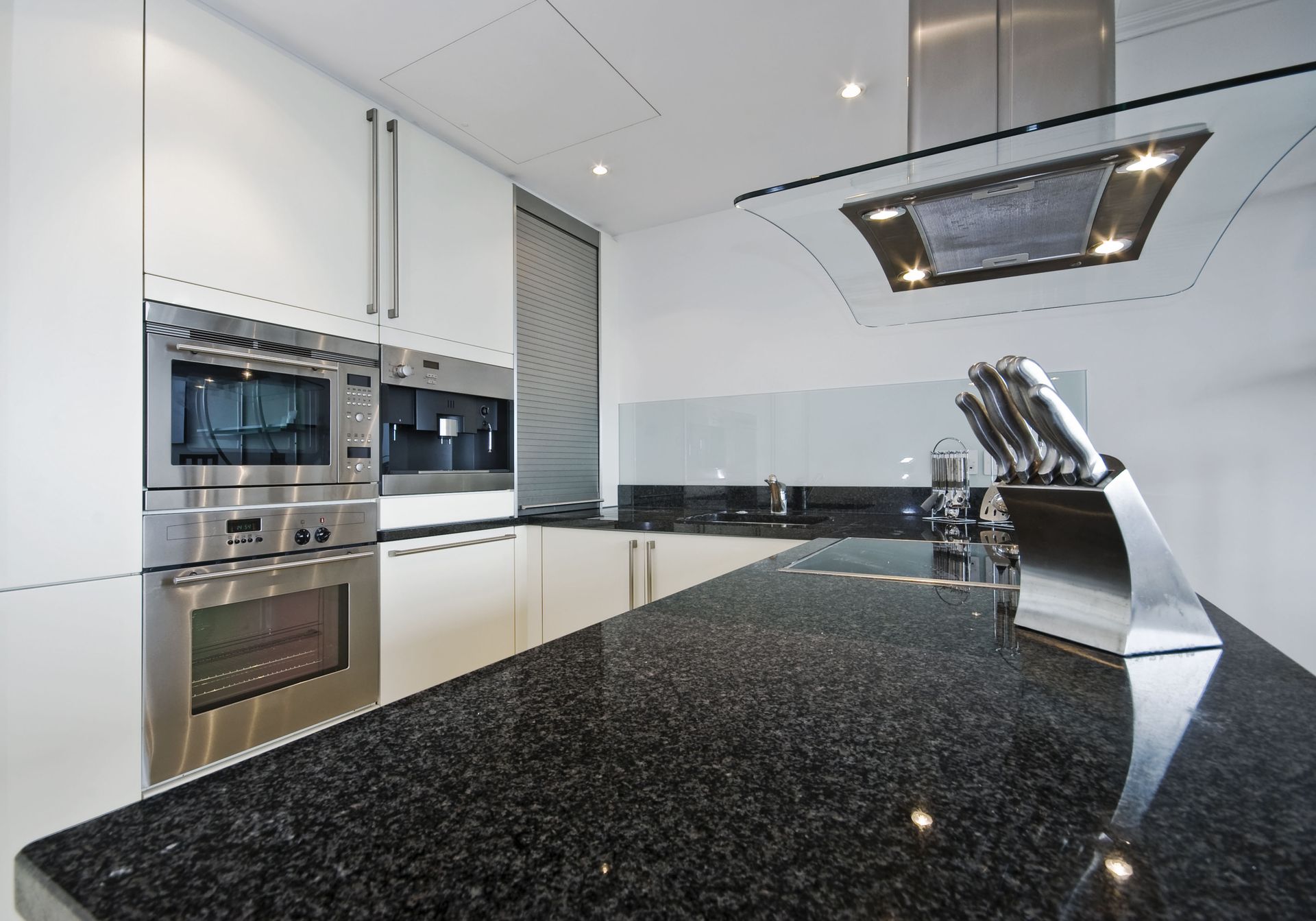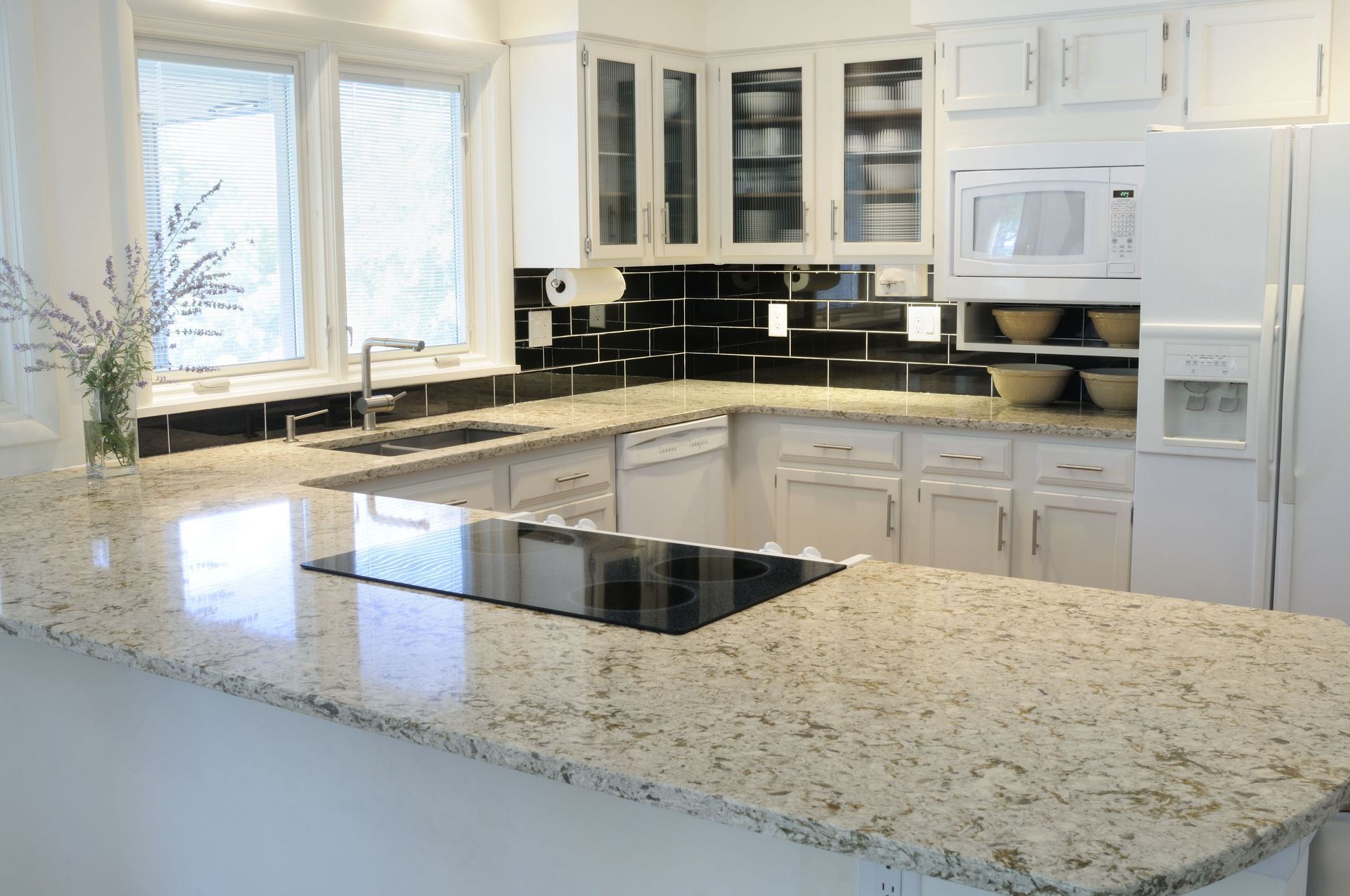October 3, 2025
When it comes to remodeling your kitchen, one of the most important decisions you’ll make is choosing the right kitchen countertop. This decision affects not only the look and feel of your space but also its durability, maintenance, and overall value. Two of the most popular options homeowners consider are quartz and granite. Both materials have unique benefits and potential drawbacks, making it essential to understand their properties before making a choice.
The right countertops balance aesthetics, practicality, and long-term investment. While some homeowners are drawn to the natural beauty and uniqueness of granite, others prefer the uniformity and low-maintenance appeal of quartz. We’ll break down the pros and cons of each material, discuss trends in kitchen remodeling, and provide guidance on which option may suit your lifestyle and design preferences best.
Appearance and Aesthetic Appeal
One of the first considerations when choosing between quartz and granite is appearance. Granite is a natural stone, formed deep within the earth over millions of years. Each slab is unique, featuring natural patterns, veins, and color variations. This makes granite particularly appealing to homeowners who want a one-of-a-kind kitchen centerpiece. From deep blacks and rich browns to light cream and gold tones, granite offers a wide variety of hues to complement any kitchen design.
Quartz, on the other hand, is an engineered stone made by combining crushed quartz with resins and pigments. This manufacturing process allows for more consistent patterns and colors, which is ideal for those who prefer a uniform, modern look. Quartz can mimic the appearance of natural stone while providing an almost limitless variety of colors and designs. For homeowners seeking a sleek, contemporary style or coordinating with other design elements like backsplashes and cabinetry, quartz offers more flexibility than granite.
In terms of aesthetic appeal, both options have strong merits. Granite brings a natural, timeless elegance, while quartz offers a polished, versatile appearance that fits a range of design schemes. Your choice may come down to whether you value the natural uniqueness of granite or the uniform, customizable look of quartz.
Durability and Longevity
Durability is a crucial factor when selecting a kitchen countertop. Granite is incredibly strong and heat-resistant, making it ideal for busy kitchens where hot pots and pans are a regular occurrence. It is also scratch-resistant, although it is not entirely impervious to damage. One of the main drawbacks of granite is that it is porous, which means it can absorb liquids and stains if not properly sealed. Regular sealing is recommended to maintain its appearance and protect it from potential damage.
Quartz, being engineered, is non-porous, which makes it naturally resistant to stains and bacterial growth. This makes it a highly hygienic option for families and avid home cooks. While quartz is generally heat-resistant, it is not as tolerant of extremely high temperatures as granite. Placing a hot pan directly on a quartz surface can cause discoloration or damage, so the use of trivets is advised. Additionally, quartz is very scratch-resistant and can handle the wear and tear of everyday kitchen use with minimal maintenance.
In terms of longevity, both granite and quartz can last for decades if properly cared for. Granite may require more upkeep to prevent staining, while quartz offers a lower-maintenance alternative with similar durability. Your choice will depend on how much effort you want to put into maintaining your kitchen countertop over time.
Maintenance and Care
The level of maintenance required can greatly influence your decision. Granite, as mentioned, is porous and needs to be sealed periodically, typically once a year, to prevent staining and bacterial growth. Daily cleaning is straightforward with mild soap and water, but harsh chemicals can damage the sealant. Despite this extra step, many homeowners find the effort worthwhile for the natural beauty that granite provides.
Quartz, in contrast, requires minimal maintenance. Its non-porous surface does not require sealing, and it is resistant to most stains, making it easier to clean with just a damp cloth and mild detergent. Quartz also doesn’t harbor bacteria or viruses, providing a safer surface for food preparation. However, it is important to avoid prolonged exposure to heat or cutting directly on the surface, as these actions can compromise its finish.
Overall, if convenience and low-maintenance are priorities, quartz has a clear advantage. Granite may appeal to those willing to invest a bit more time into preserving the natural stone’s look and integrity. Understanding the care requirements upfront can help you choose the kitchen countertop that fits your lifestyle best.
Market Trends and Popularity
Market trends can also provide insight into which countertop might be right for you. In recent years, quartz has seen a significant rise in popularity due to its versatility, durability, and ease of maintenance. According to Mordor Intelligence, quartz is the most popular kitchen counter material in remodeled homes, accounting for 42% of installations, while 24% of counters in remodeled homes are granite. This shift reflects a growing preference for low-maintenance surfaces that still offer style and elegance.
Granite remains a favored choice for homeowners who value natural beauty and unique patterns, particularly in luxury homes or those with classic or traditional designs. However, the trend suggests that quartz is becoming the go-to material for modern remodels, thanks to its consistency, color options, and practical benefits. Understanding these trends can help you make a choice that aligns with both current design aesthetics and long-term investment value.
It’s also worth noting that many homeowners choose to combine elements of both. For example, some kitchens feature a quartz countertop on the main prep area for its durability and hygiene benefits, while using granite on an island or bar area for visual interest. This approach allows homeowners to enjoy the advantages of both materials while enhancing the overall design.
Cost Considerations and Investment Value
Budget is always a key factor when selecting a kitchen countertop. Granite is often seen as a premium material, and while it may require periodic sealing and maintenance, its natural beauty and timeless appeal can enhance a home’s resale value, especially in upscale markets. Homeowners who appreciate unique, natural patterns often consider granite a worthwhile investment for long-term enjoyment and style.
Quartz, on the other hand, is valued for its consistency, low-maintenance benefits, and durability. Its resistance to stains, bacteria, and daily wear can make it a practical choice for busy households, providing peace of mind and long-term convenience. From an investment perspective, both granite and quartz can add value to a home, but quartz may offer a more predictable outcome in terms of upkeep and performance over time.
When considering your budget and investment, it’s important to weigh both the initial installation and the long-term benefits. Both granite and quartz are excellent choices that combine durability, beauty, and practicality. The best option will depend on your design preferences, lifestyle needs, and the type of experience you want in your kitchen.
Choosing the right kitchen countertop is a significant decision that impacts your home’s aesthetics, functionality, and value. Whether you choose the natural elegance of granite or the engineered perfection of quartz, investing in quality kitchen counters is an investment in both your home’s value and your everyday enjoyment.
Explore our kitchen countertop options at Precision Stone and discover the perfect surface to elevate your kitchen’s style and functionality.




